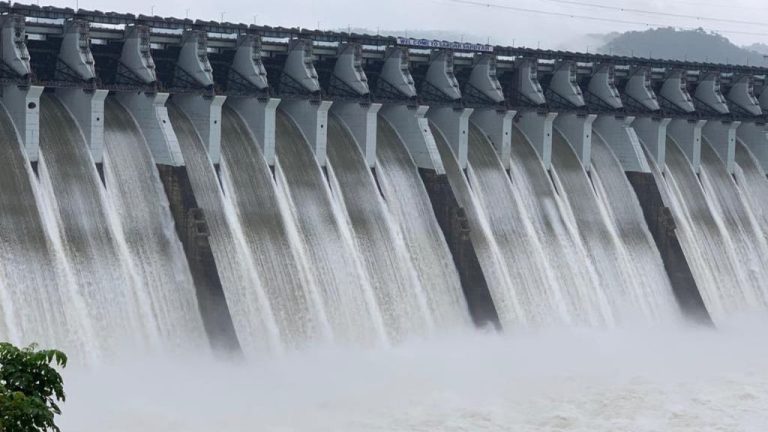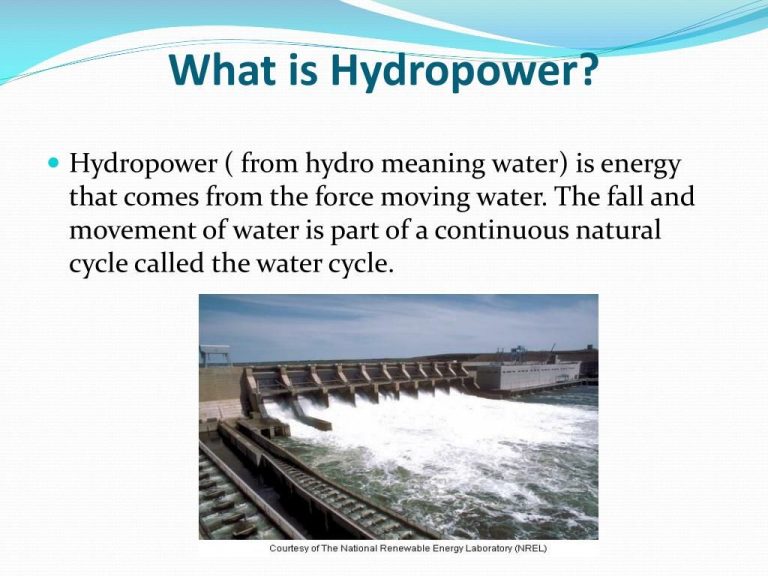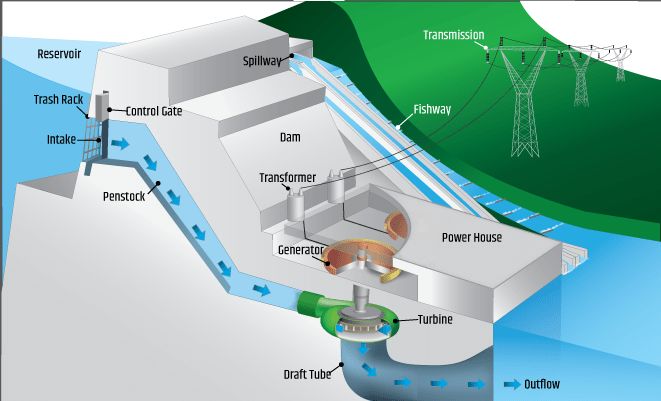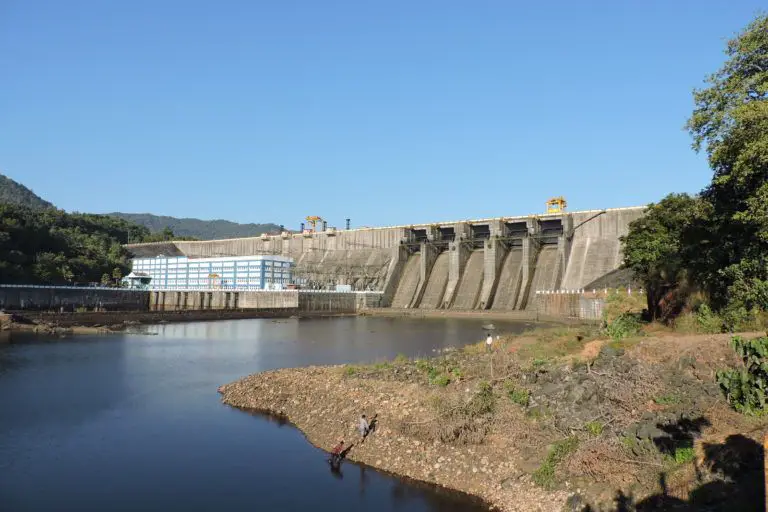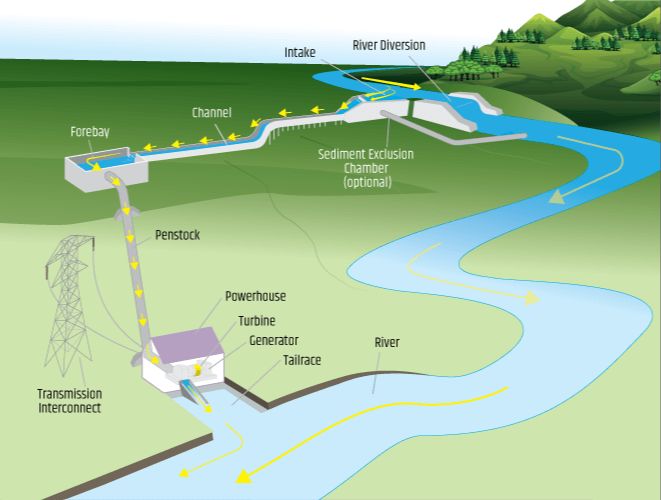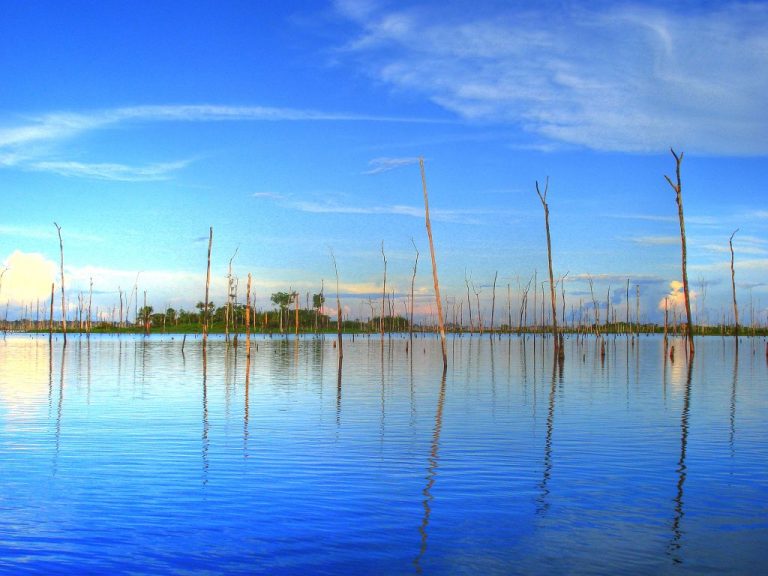What Does The National Hydropower Association Do?
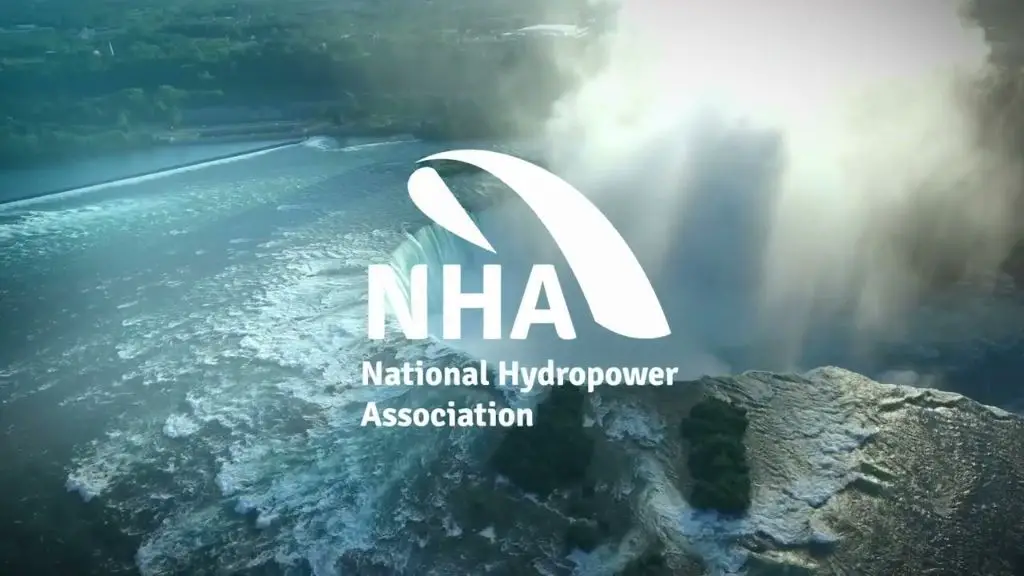
Hydropower is one of the oldest and most established sources of renewable energy, providing affordable, reliable, and sustainable power generation. The energy from flowing water has been harnessed for centuries, originally to power water wheels and mills. Today, hydropower accounts for over 7% of total electricity generation and over 35% of renewable electricity generation in the United States. Some key facts about hydropower in the US (https://www.eia.gov/energyexplained/hydropower/):
- Over 2,200 hydropower plants generated about 6.6% of total U.S. electricity generation and 37% of electricity generation from renewables in 2019.
- Hydropower plants range in size from small, micro, and low-power plants producing enough electricity for a home or village to large facilities capable of powering several towns and cities.
- The top five states, in order, that generate the most electricity from hydropower are Washington, California, Oregon, New York, and Alabama.
As one of the oldest and largest renewable energy sources, hydropower will continue playing a key role in the nation’s energy mix and in the transition to a cleaner energy future.
History
The National Hydropower Association (NHA) was formed in 1982. According to the NHA’s website, “In 1982, a small group of idealistic hydropower suppliers and manufacturers descended on Washington, D.C. for a day of lobbying on Capitol Hill. This informal but spirited advocacy effort turned into the genesis for the National Hydropower Association.”
America’s first hydroelectric power plant opened in Appleton, Wisconsin in 1882, demonstrating the long history of hydropower in the United States. Despite this long legacy, it took until 1982 for hydropower suppliers to organize a trade association to advocate for the industry in Washington D.C. The NHA was founded that year and has grown to over 200 members today.
Source: https://www.hydro.org/about/history/
Mission
The National Hydropower Association’s (NHA) mission statement is “Champion the resurgence of Hydropower, in all of its forms, as America’s premier carbon-free renewable energy resource” (https://www.hydro.org/wp-content/uploads/2017/08/2017-policy-priorities-final-February-2.pdf). This mission focuses on promoting hydropower as a renewable, sustainable energy source for the United States.
Advocacy
The National Hydropower Association advocates for policies and legislation that support the growth of hydropower in the United States. According to their website, some of their key advocacy priorities include securing long-term extensions of the hydropower tax incentives, modernizing FERC hydropower licensing, improving hydropower’s value for grid services, and investing in next-generation marine energy technologies (https://www.hydro.org/).
In 2021, the NHA published an article highlighting their advocacy accomplishments that helped save the hydropower industry over $600 million through extending tax credits and improving FERC regulations (https://www.hydro.org/powerhouse/article/how-our-advocacy-efforts-saved-hydropower-in-2022/). The NHA engages in direct lobbying, grassroots advocacy, regulatory intervention, and stakeholder engagement to promote policies that recognize the value of hydropower.
Events
The National Hydropower Association organizes several major events and conferences each year related to the hydropower industry. Their two flagship conferences are Clean Currents and Waterpower Week. Clean Currents is focused on clean energy topics while Waterpower Week covers the full range of hydropower and marine energy issues.
Some of the key conferences and events organized annually by the NHA include:
- Clean Currents Conference & Tradeshow – Held each October, this covers renewable energy integration, sustainability, and clean energy policy issues.
- Waterpower Week – The major annual hydropower event held each spring in Washington DC, covering policy, technology, and project development.
- NHA Webinar Wednesdays – Free webinars on various hydropower topics held throughout the year.
- NHA Regional Meetings – Local events held in different regions of the US focused on policy issues and project tours.
The NHA provides a centralized events calendar on their website where members and nonmembers can view upcoming conferences, meetings, and webinars focused on hydropower and marine energy.
Education
The National Hydropower Association (NHA) provides various educational initiatives and resources to support the hydropower industry. This includes their annual conference which brings together experts to share knowledge and best practices (https://www.hydro.org/).
Additionally, the NHA partners with utilities and educational institutions to provide hands-on learning opportunities for students. For example, Grant County Public Utility District in Washington state worked with the NHA to allow middle school students to tour the Priest Rapids Dam and learn about hydropower and the Columbia River (https://www.hydro.org/powerhouse/article/how-a-hydro-project-owner-helps-students-experience-the-columbia-river/).
The NHA also provides online educational resources through their website, publications, and webinars to share industry knowledge and support professional development in the hydropower sector.
Research
The National Hydropower Association funds and conducts research to advance the hydropower industry and provide clean, renewable energy. According to the NHA website, “Research and development is critical to waterpower’s future.”
The NHA operates the Waterpower Research Portal (WaRP), which is a database of hydropower, pumped storage, and marine energy research conducted by various organizations. WaRP contains over 2,500 reports to help the industry access the latest developments and innovations in the field. The NHA calls it “a living database” that is continually updated.
Additionally, the NHA partners with the Department of Energy and Oak Ridge National Laboratory to produce publications like the “Hydropower Vision Report.” This report looked at the future of hydropower in the U.S. and made recommendations to maximize its growth and benefits. The NHA provides both funding and oversight for major collaborative research projects like this.
Overall, research allows the NHA to advocate for the hydropower industry, educate stakeholders, and provide data-driven guidance for the continued development of carbon-free, renewable hydropower generation (https://www.hydro.org/policy/priorities/research-development/; https://www.hydro.org/resources/warp/).
Partnerships
The National Hydropower Association has partnerships with various organizations and companies in the hydropower industry. Some of their key partnerships include:
The U.S. Department of Energy – The NHA partners with the DOE on research and development initiatives to advance hydropower technology and lower costs. They work together through programs like the Water Power Technologies Office (https://www.energy.gov/eere/water/water-power-technologies-office).
American Public Power Association – The NHA and APPA collaborate on policy issues impacting publicly owned hydropower projects. They aim to promote growth in hydropower for public power utilities (https://www.publicpower.org/).
National Labs – The NHA works with various Department of Energy national labs like the Idaho National Lab and Oak Ridge National Lab on cutting-edge hydropower research and development (https://www.hydro.org/national-labs/).
Hydropower suppliers and manufacturers – The NHA partners with companies that supply hydropower equipment and services. These partnerships aim to support technical innovation and cost reductions throughout the supply chain.
Other hydropower associations – The NHA partners with related associations like the International Hydropower Association to advance the industry globally.
Membership
The National Hydropower Association welcomes membership from companies and organizations involved in hydropower development, technology, and services according to their Membership page. Membership is available for hydropower owners, operators, suppliers and manufacturers. There are different membership tiers available based on the size of the member company.
Some key benefits of NHA membership include:
- Access to industry data and resources
- Discounts on events and training programs
- Visibility and networking opportunities
- Input on policy and regulatory issues
- Inclusion in the membership directory
Full details on membership options and benefits are provided on the NHA How to Join page. Companies interested in joining can complete the online application form on the Join Now page.
Conclusion
In summary, the National Hydropower Association serves a vital role in advancing the hydropower industry and promoting the growth of this renewable, affordable, and reliable energy source. Through its advocacy, research, partnerships, and educational initiatives, the NHA champions the development of new hydropower projects, supports technological innovation, and highlights the importance of hydropower to America’s energy mix. The association gives the industry a unified voice in promoting supportive policies at the federal and state levels. It also facilitates collaboration and knowledge-sharing among its diverse membership of public and private organizations. With over 100 years of experience, the NHA continues to be the premier advocate for hydropower as part of a clean energy future.

